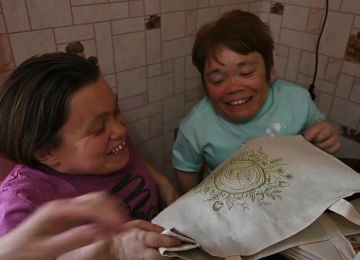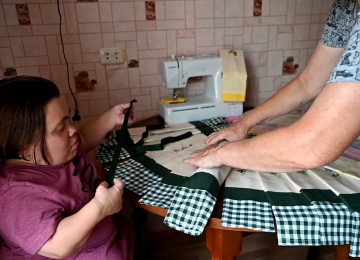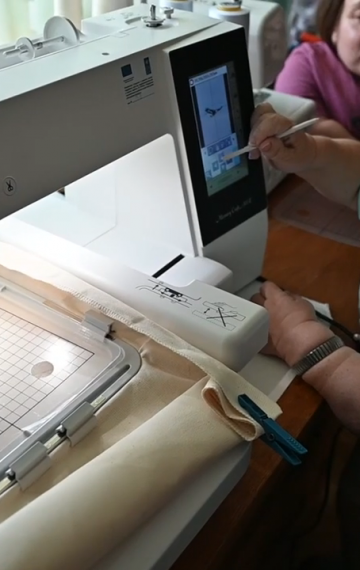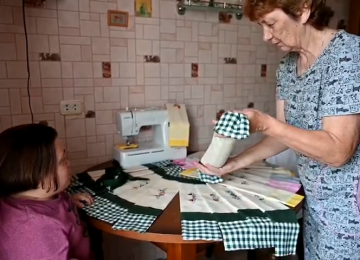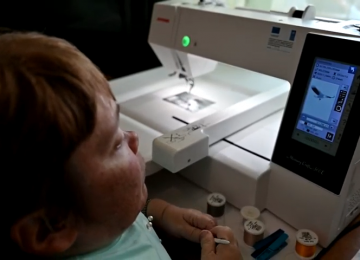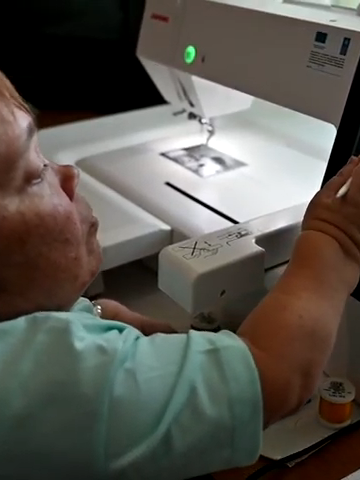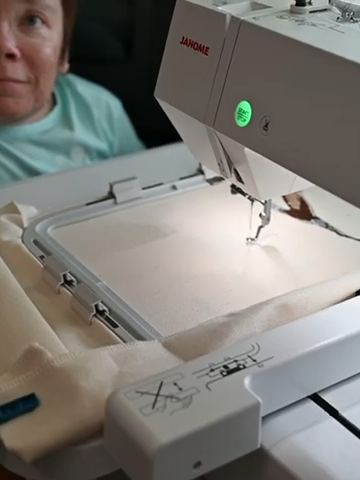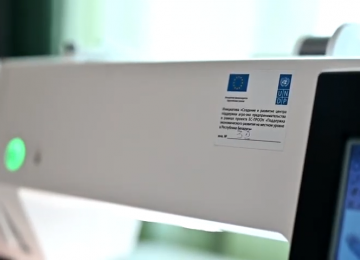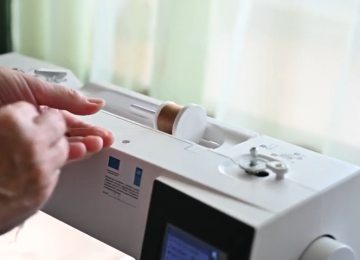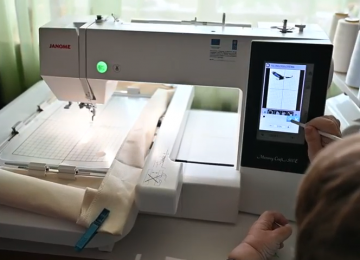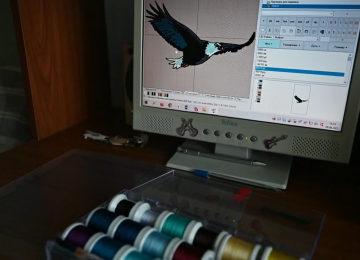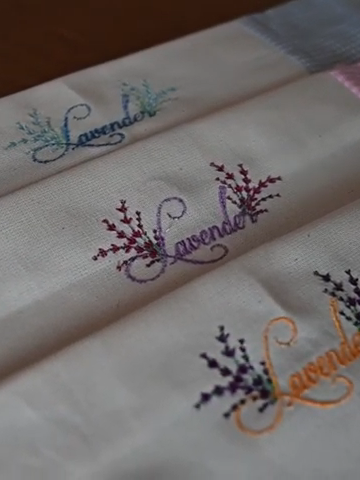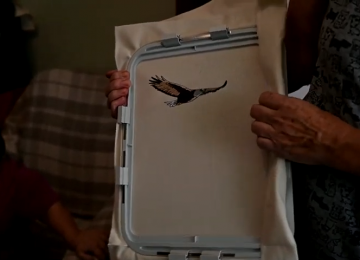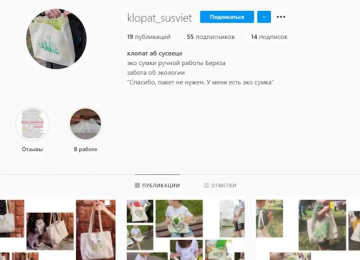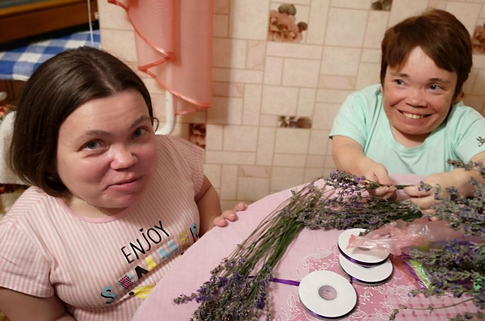
When they first began working, Lyudmila and Svetlana Golovko worked in their professional fields. For 12 years, Lyudmila worked at the local library, while Svetlana ran needlework groups at local preschools. Still, as health problems emerged, their workplaces were shut down. The COVID-19 pandemic severely affected their business activities and the sisters were left completely jobless.
Still, they never managed to get bored. Just at that time, the Centre for Agro-Eco-Entrepreneurship launched by UNDP and the Ministry of Economy of Belarus with the support of the EU’s EU4Business initiative opened its doors in Bereza. Staff at the Centre proposed that the Golovkos begin creative work at home: making souvenirs.
To support the start-up, the sisters were provided with high-tech sewing and embroidery machines. Learning to use the new technology was not that easy, but the women soon saw good results. Their products are distinguished for their high quality and have become very popular in Bereza and beyond.
Today, the sisters Lyudmila and Svyetlana produce creative eco-friendly shopping bags in natural cotton and linen with stylish embroidery. The girls make sure that every bag is practical for everyday use while travelling or shopping. Moreover, using these multi-use bags helps protect the environment against single-use plastic bags.
The Golovko sisters plan to make their business better known, to increase sales and, without stopping at what they have already achieved, to expand their business further.“The main advantage of ecobags is that they are strong and lasting,” says Svetlana. “Fabric doesn’t tear and can hold as much as 3-4 plastic bags. And it’s economic on top of that. Shops don’t hand out plastic bags for free. A family of three is likely to spend more than BYR 40 a year on disposable bags, while our ecobag costs 18 roubles. Besides, you save more than just your own money, but taxpayer money spent on collecting and disposing of garbage, too.”
According to a UNDP study entitled “Assessing the impact of the COVID-19 pandemic on SMEs in Belarus,” eight out of 10 SMEs in the country have felt the negative impact of the pandemic. Businesses involving women have been hardest hit because women in Belarus are mainly employed in the service sector, those industries that are most vulnerable to the pandemic and its consequences: tourism, retail sales and food services. Moreover, women were burdened with additional responsibilities during the pandemic: caring for sick relatives and looking after children who were unable to go to school. The study also found that businesses run by women were more likely to be denied financing by banks.
The UNDP has been working together with the European Union and national and local partners in the regions, developing pilot projects to support and develop SMEs in the face of COVID-19. Fostering local business ideas and helping bring them to life helps generate new jobs and strengthen the resilience of local communities.
The Centre for Agro-Eco-Entrepreneurship in Bereza County, Brest Oblast is one of 10 Business Support Centres open under the “Support for local economic development (LED) in Belarus” project being carried out by UNDP in partnership with the Belarus Ministry of Economy and funded by the European Union under the EU4Business initiative.

